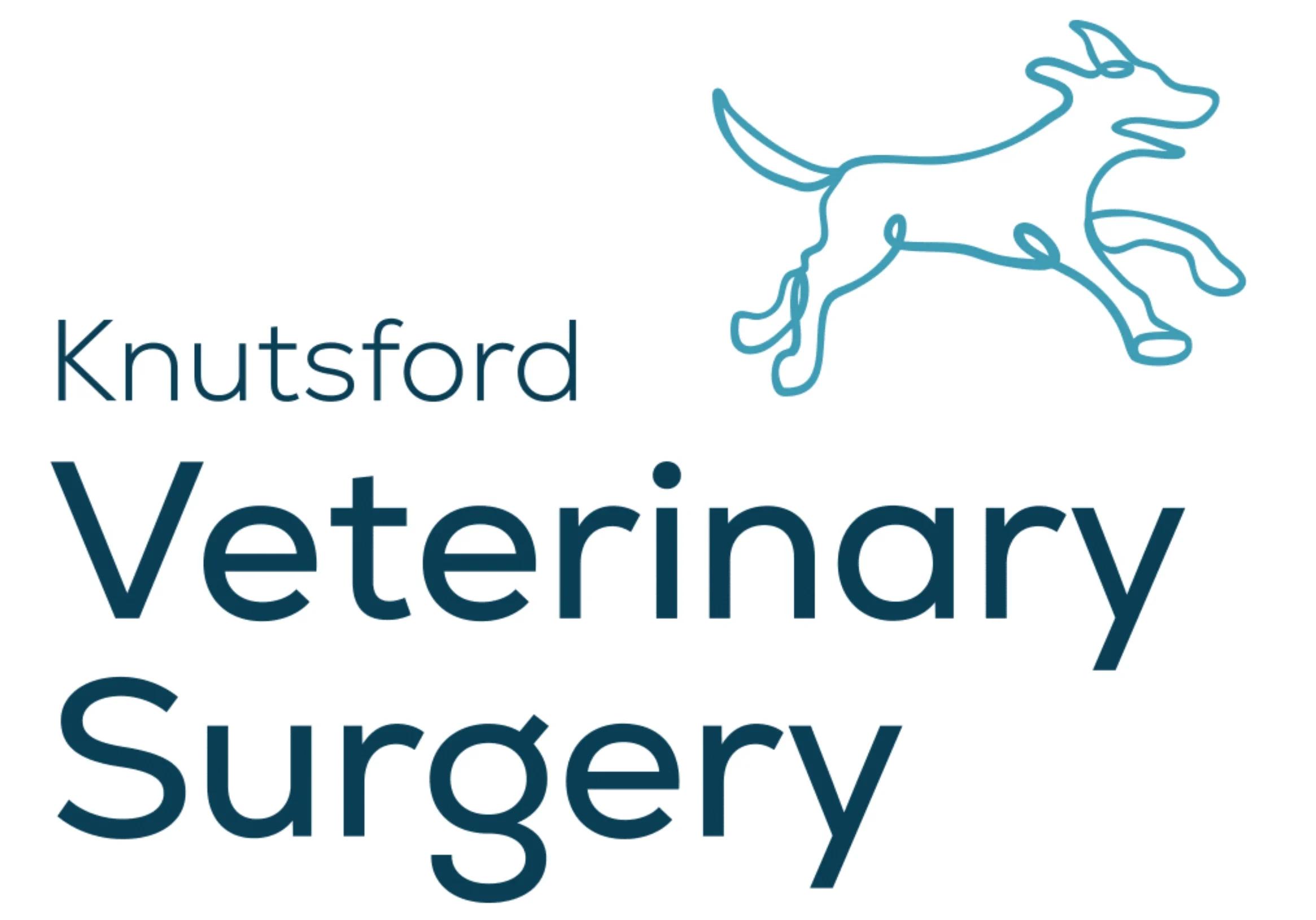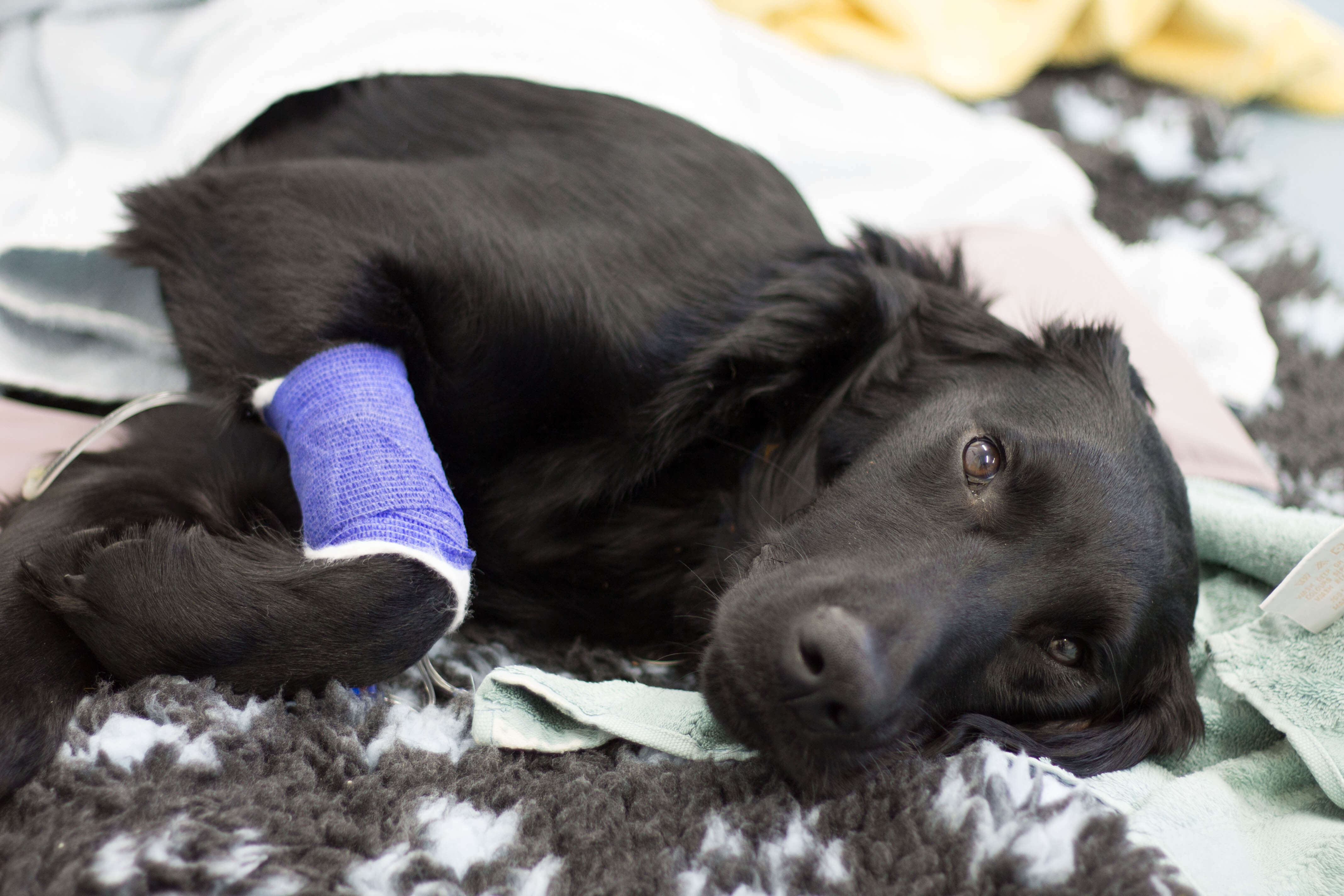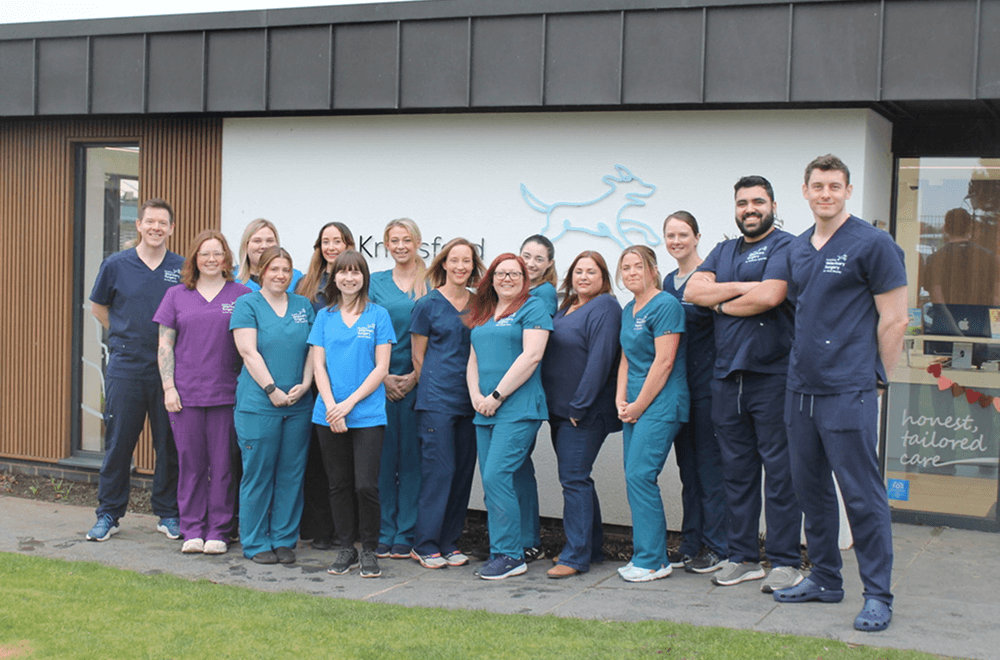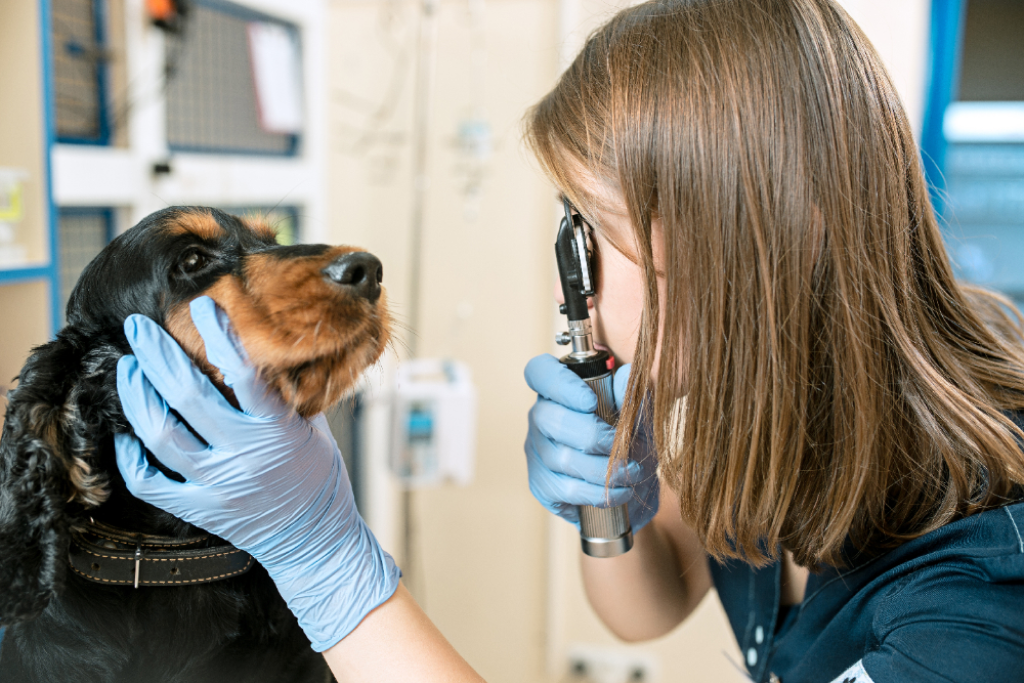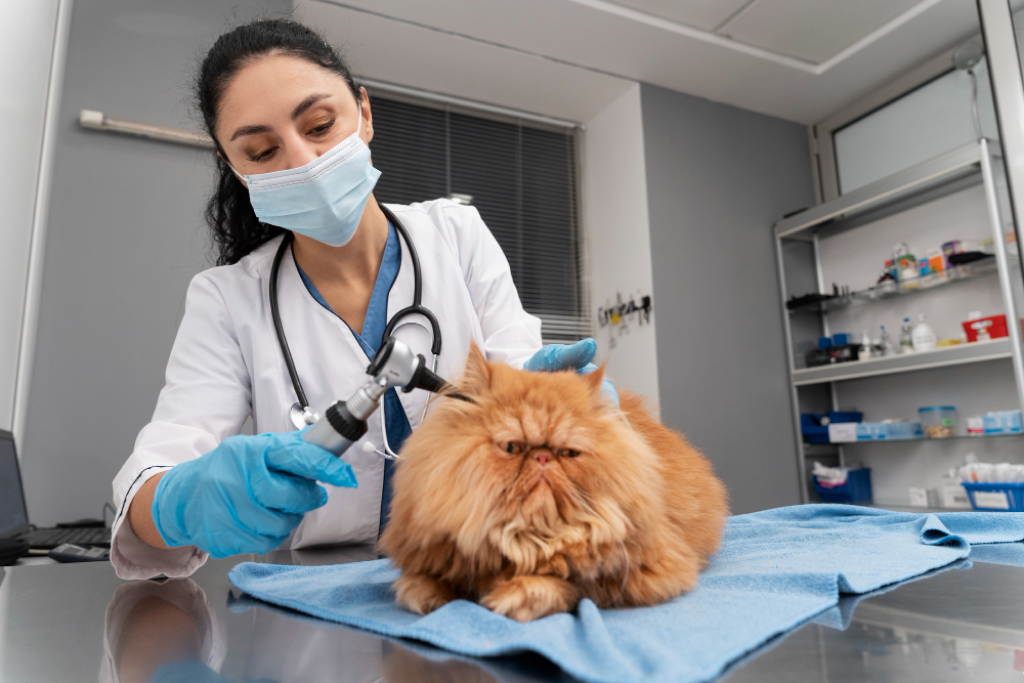Late last year Max, a nine month old golden retriever x flat coat retriever, stopped being his usual very bouncy self. He was lethargic, reluctant to eat or drink, and held his neck rigidly with a very anxious look upon his face, particularly when anyone approached him.
Max’s owners were advised to bring him straight down for an appointment. On clinical examination he was found to have marked pain on flexion of his neck downwards or from side to side and a very high temperature. Otherwise, his clinical and neurological examinations were unremarkable.
Decisive care from Knutsford Vets
Based on these indications alone, there was an immediate concern that Max had inflammatory disease of his central nervous system (CNS). Paul Adams, Clinical Director at Knutsford Vets, said: “I gave Max some strong pain relief initially and spoke to the neurologist at a local specialist hospital in Frodsham. We both agreed that an MRI scan and sampling of the cerebrospinal fluid that surrounds the central nervous system was necessary to diagnose what was wrong with Max.”
The MRI scan showed inflammatory lesions in the brain and spinal cord, but it was another two days before the full diagnosis was confirmed. It was eventually revealed that Max was suffering from toxoplasmosis.
“Toxoplasmosis is a parasitic disease caused by Toxoplasma gondii,” explains Paul. “The primary host is cats (the main reason that women are advised to minimise contact with cats during pregnancy) and Max’s owner had just rescued a very cute stray kitten called Willow, which on testing for Toxoplasma gondii was shown to be the source of infection despite having no clinical signs herself”.
“Toxoplasmosis is usually asymptomatic but in rare cases dogs (and people) can become seriously ill and on occasion the disease can be fatal. The parasite can cause encephalitis (inflammation of the brain, as seen in Max’s case) and neurological disease, but may also affect the heart, liver, inner ears and eyes.”
Long road to recovery
Both Max and Willow were immediately started on a long course of antibiotics. Max was also started on anti-inflammatory pain medication and over the next few days made good improvement. Regular blood testing was undertaken to track his progress and after four weeks he was finally given the all clear.
Max is a good example of how early detection and intervention by owner, vet and specialist can lead to a happy outcome, but does also remind us that there are real risks of transmissible disease between species, including humans and whilst these zoonotic diseases are rare, they can be serious.
In the case of Toxoplasmosis, good hygiene when cleaning out cat litter is paramount and indeed pregnant women are advised to avoid this chore altogether. For more advice on toxoplasmosis or to book an appointment, contact Knutsford Vets.
